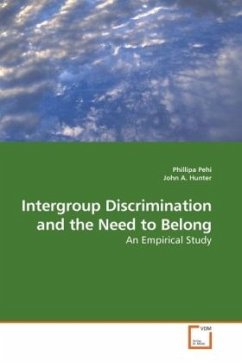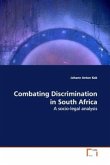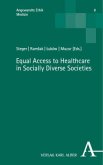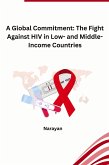Intergroup discrimination is a pervasive fact of life and many factors are proposed to contribute or relate to its existence and expression. Though much research in social psychology has focused on the need for positive self-esteem as an underlying motive, in the past 25 years, evidence for the role of self-esteem in intergroup discrimination has at best proved contradictory. This thesis focuses on the role that the need to belong plays in intergroup discrimination as this need has long been recognised as a basic human motivation. The results from this study indicate that there may be a relationship between intergroup discrimination and the need to belong and that this may be most appropriately assessed using a group level measure of the need to belong rather than measuring at an individual level. Moreover, these results cannot be explained on the basis of self-esteem. These findings indicate that the investigation of the relationship between intergroup discrimination and the need to belong may further elucidate the underlying nature of prejudice.







